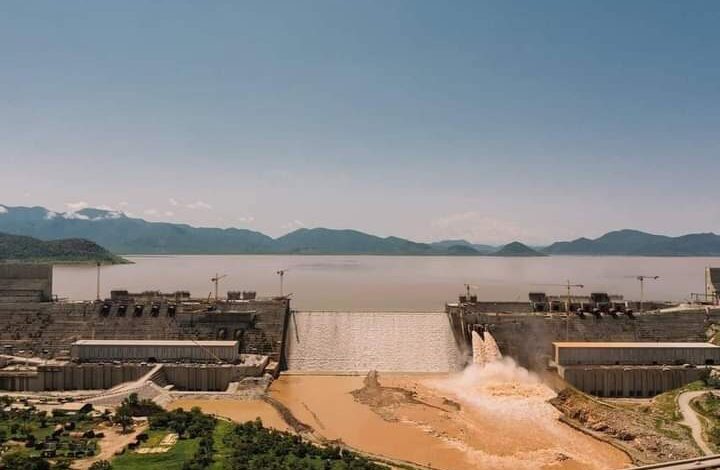Sudan rejects the unilateral measures from Ethiopia and the policies of imposing a fait accompli on the Renaissance Dam

Khartoum | Times of Sudan
Today, the Sudanese government renewed its firm position by rejecting Ethiopia’s unilateral measures and policies of imposing a fait accompli and ignoring the legitimate interests and serious concerns of its partners in the Blue Nile River.
Today, the Ethiopian authorities announced the completion of the filling of the Renaissance Dam for this season in a unilateral measure for the second year in a row.
The Sudanese Ministry of Irrigation said in a statement:
The Ethiopian authorities announced today, the completion of the filling of the Renaissance Dam for this season, in a unilateral measure for the second year in a row.
In response to this announcement, the Ministry of Irrigation and Water Resources renews its firm position in Sudan’s rejection of unilateral measures from neighboring Ethiopia and policies of imposing a fait accompli and ignoring the legitimate interests and serious concerns of its river partners.

The ministry affirms that the best alternative to this Ethiopian approach, which will only harm the distinguished historical relations between the two brotherly countries and peoples, is to continue negotiations, in good faith, to reach a binding and comprehensive legal agreement that preserves the interests of all parties and addresses their concerns, in particular the safe operation of the Roseires Dam.
The Ministry stresses its belief that it is not too late, and that reaching the desired agreement is very necessary, possible and available, if the political will is available.
We assure our citizens that the responsible authorities have been working for months to anticipate and take the appropriate technical and administrative measures to limit the actual and potential negative effects of the unilateral filling for the second year in a row at a high economic and social cost and a heavy burden incurred by our citizens in the shortage of electricity and drinking water supplies, even if not for technical precautions. By changing the operating systems in the Roseires and Jebel Awliya reservoirs, the results would have been disastrous in terms of providing the levels required for drinking water plants and for generating electricity.




